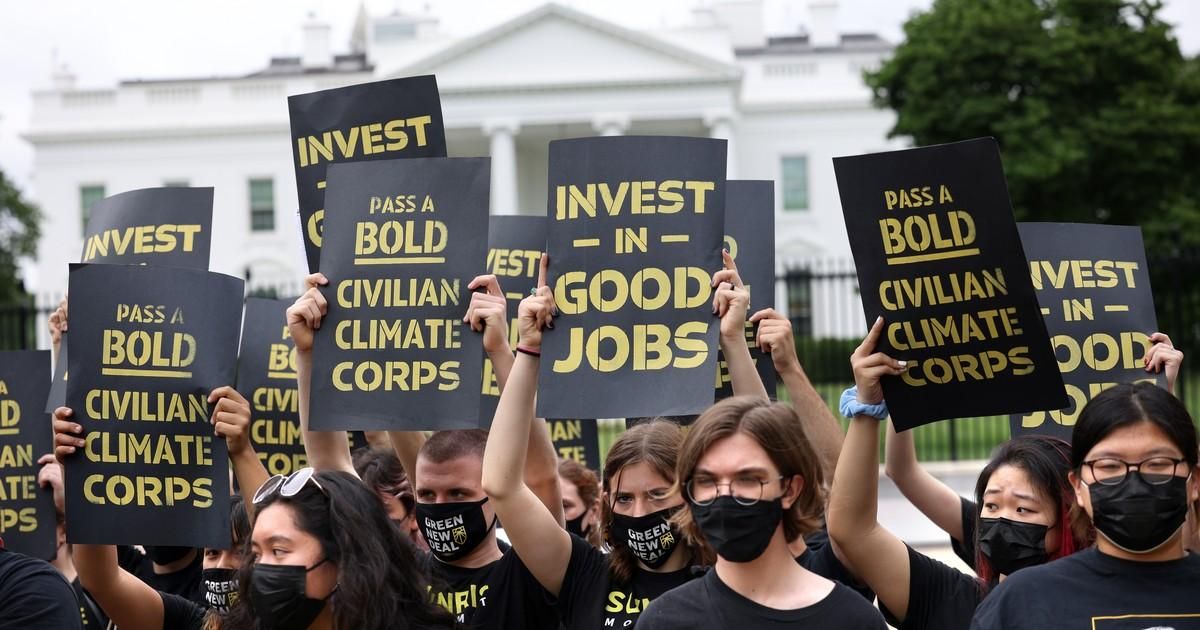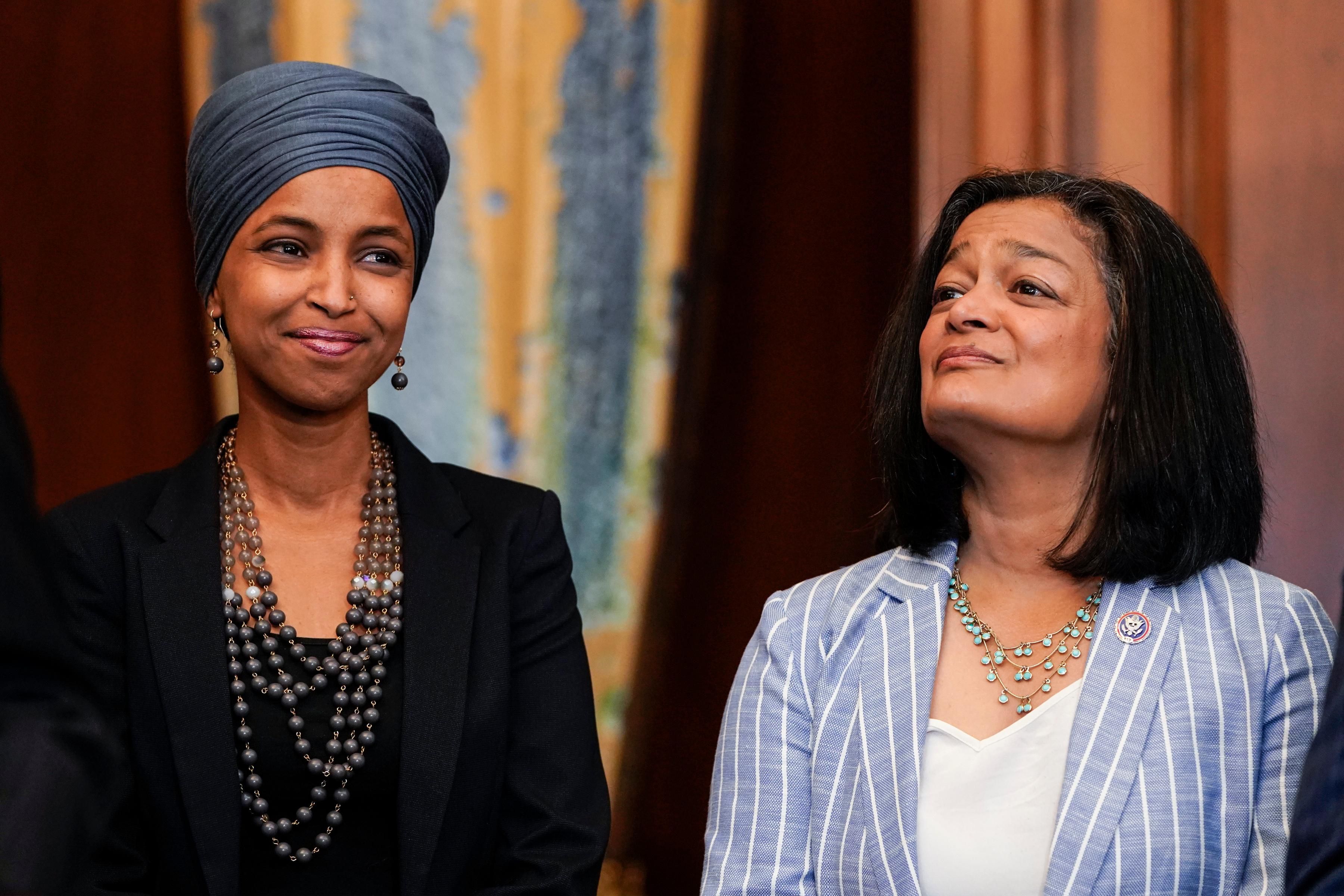The White House endorsement of European defense apart from NATO is worth more than a $66 billion deal with Australia.

France's President Emmanuel Macron (L) talks to US President Joe Biden before a meeting of the North Atlantic Council at the North Atlantic Treaty Organization (NATO) headquarters in Brussels on June 14, 2021.

BY KEVIN BARON
EXECUTIVE EDITOR
SEPTEMBER 22, 2021
The $66 billion submarine deal with Australia is lost, but France’s President Emmanuel Macron may have won something far more valuable from President Joe Biden.
For several years now, Macron has pitched the idea that Europe needs to boost its military spending and capabilities to better defend itself and its interests. U.S. and NATO leaders have largely responded politely but dismissively to a concept they argue could subvert the 71-year old alliance. Europe? Defend itself? Says France? Okay. But did the United States just come around?
The break came on Wednesday, after a week of Franco-American diplomatic faux pas from both sides over the surprise (to Paris) revelation that Australia would purchase American- and British-made nuclear-powered submarines instead of French diesel boats. Macron recalled his U.S. ambassador over it, and Biden had spent days trying to get his French counterpart to talk about it. When Macron finally picked up the phone, it’s unclear whether he got an apology from Biden. But buried inside the joint U.S.-French readout of their call came news of a major policy concession.
“The United States also recognizes the importance of a stronger and more capable European defense, that contributes positively to transatlantic and global security and is complementary to NATO,” says the joint statement.
That’s big. The part that matters most is the phrase “and is complementary to NATO.”
Recall that nearly two years ago, Macron called NATO a “brain-dead” organization. He has since argued in many venues that while NATO’s nuclear umbrella remains essential, Europe cannot and should not rely on outsiders— meaning the U.S., UK, Canada—for safety and security. Just weeks after Biden took office, Macron told the Atlantic Council think tank, “My mandate has been to try to reinvent or restore an actual European sovereignty.” Of late, he has argued that a stronger and independent European defense would make NATO stronger by relieving some of the burden on the larger defensive nuclear pact and allowing Europeans to think, plan, and act more quickly and independently.
It’s quite a turn after two decades in which U.S. officials have gently and not-so-gently prodded NATO’s European members to shoulder more of the burden of collective defense. Of course, that was always meant to take place within the construct of an alliance in which America is the big dog. The NATO supreme allied commander is an American military four-star officer, not French, German, British, or North Macedonian.
Recall that in February, Biden’s first transatlantic coming-out speech as president was filled with niceties that slighted Macron’s ideas by not even acknowledging them. Read aloud today, those remarks to the Munich Security Conference should be embarrassing for this White House. “I know the past few years have strained and tested our transatlantic relationship, but the United States is determined — determined — to re-engage with Europe, to consult with you, to earn back our position of trusted leadership,” Biden said.
Ha, some trust. September’s submarine scandal torpedoed that sentiment. The French were given no notice, much less consultation, about the coming deal, according to the New York Times and other newsrooms. So French leaders are furious while American and British leaders are hardly apologetic. Biden hasn’t taken a single question about the deal; in his public opening remarks with the leaders of Australia and the UK at the United Nations this week he made no mention of submarines; only the other leaders did.
So let’s take this for what it’s worth, no more or less. The Biden White House’s one-line acknowledgement that a European defense capability that is separate but complementary to NATO is “important” was buried in a diplomatic readout of a private conversation. That is hardly a ringing endorsement. But it’s new, and rest assured Paris will use those words to continue making their case. Macron can now say he moved Biden further toward Paris’s position. And Biden can say he’s open to European defense evolution. Both can say they still love NATO. But none of us yet knows how far Biden is really to go down this path with Marcon, if at all.
They won’t have too much time to lurk behind vagaries. Biden and Macron agreed to meet in late October. If we don’t know more by then whether these world leaders are serious about creating a new European defense and security autonomy, that’s the question I would ask first.


/cdn.vox-cdn.com/uploads/chorus_image/image/69896319/1235434673.0.jpg)







